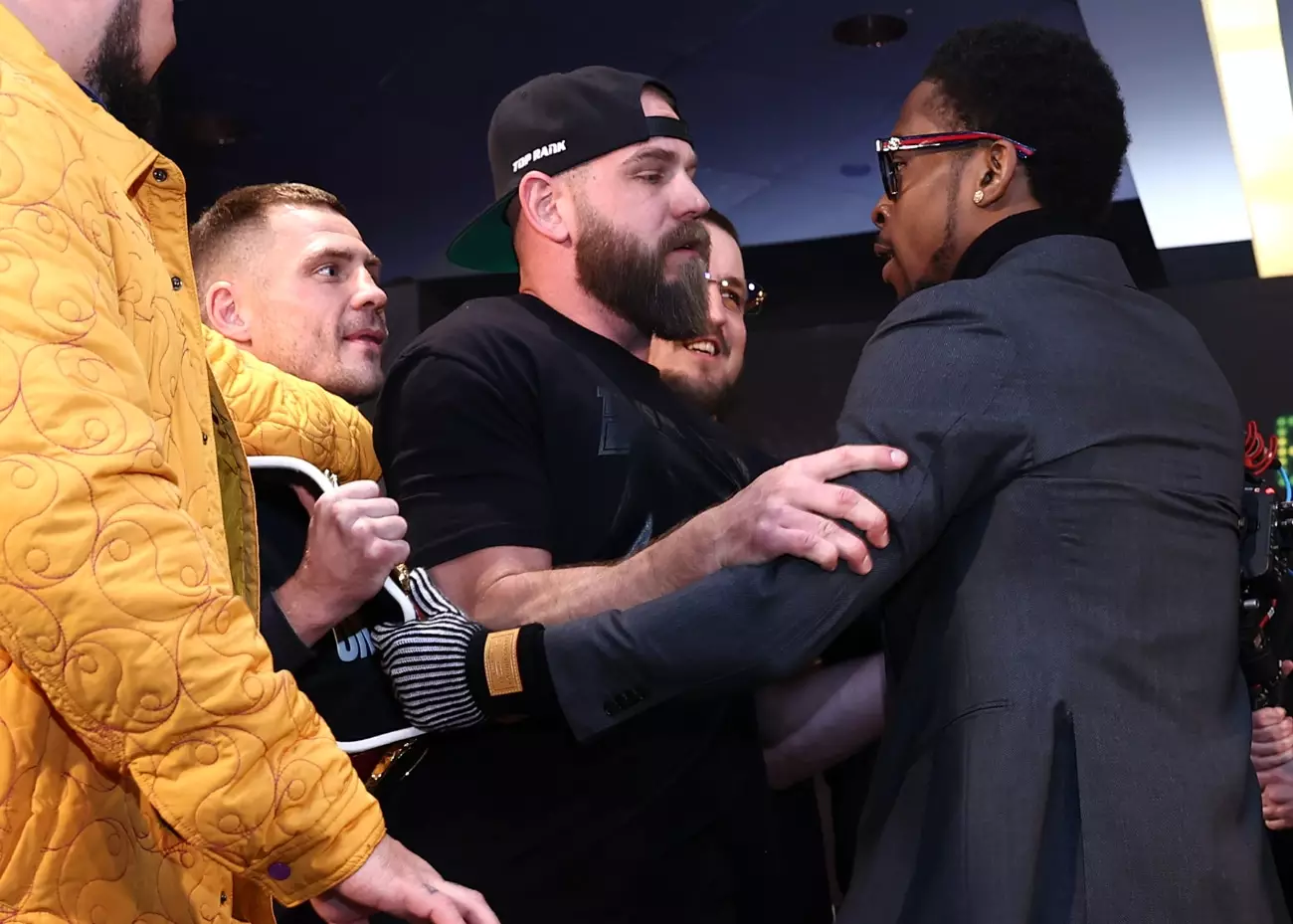In the world of professional boxing, where emotions run high and rivalries often intensify, recent events have taken a surprising turn. Keyshawn Davis, a rising star in the lightweight division, found himself embroiled in controversy after he accused the WBO lightweight champion, Denys Berinchyk, of racism. The accusation arose when an anonymous person sent a peculiar package containing bananas and watermelons to Davis’s hotel room. Although the contents of the package were bizarre and seemed to carry an offensive undertone, there was no solid evidence linking Berinchyk to the act, rendering Davis’s claims more sensational than substantiated.
The situation ignited when Teofimo Lopez, a respected figure in the boxing community, chimed in via social media. His post appeared to mock the entire situation, with many fans speculating that Lopez may have initiated the prank, hoping to provoke Davis. If this theory holds any merit, it positions Berinchyk not just as a target of Davis’s unfounded accusations, but also as an unwitting victim of Lopez’s alleged mischief, further complicating the narrative.
Accusatory rhetoric, especially regarding sensitive topics like race, can have profound implications, particularly in the boxing world where fighters’ reputations hinge on their public perception. Davis’s bold declaration during a press conference, branding Berinchyk as a “racist,” without valid evidence, is not merely a case of inflammatory speech. It is an act that could irreparably damage Berinchyk’s character and professional standing. In the sport where every punch thrown leads to consequential outcomes, the verbal onslaught carries the potential to sway public opinion and disrupt careers.
Davis’s aggressive stance is particularly concerning in a sport eager to shed the remnants of negativity associated with racism and inequality. By leaning into unfounded claims and embracing sensationalism, fighters risk perpetuating a culture that thrives on drama rather than sportsmanship. This incident serves as a reminder of the importance of accountability, especially among those in the public eye who hold considerable influence over fans and aspiring athletes.
Beyond the controversy lies Davis’s formidable ambition. He has made it clear that capturing a world title is his primary goal, claiming that it will validate his place among the sport’s elite. In a statement that seemingly contradicts his discomfort with Berinchyk, he notes, “If you have that world title and I’m taking it from you, then you gotta consider me one of the best.” Yet, the irony of questioning Berinchyk’s abilities while simultaneously seeking the opportunity to fight him complicates an already muddied relationship.
Davis’s decision-making regarding opponents also begs scrutiny. While he claims that the lack of a title makes fighters like Andy Cruz unworthy, he previously expressed interest in facing Berinchyk before he secured championship status. This dichotomy suggests a selective approach to competition that seems to favor fighters perceived as easier targets, reflecting a strategic but perhaps disingenuous mindset in an athletic environment that should prioritize challenge and progression.
As Davis prepares to face Berinchyk in an upcoming title bout, the stakes have never been higher. The animosity created through unfounded accusations could serve as motivation or lead to an explosive clash fueled by personal grievances rather than pure athleticism. The narrative surrounding their fight has escalated beyond mere competition; it now encompasses themes of integrity and respect within the sport.
Ultimately, this unfolding drama serves as a microcosm of the challenges facing contemporary boxing. The line between entertainment and ethics is increasingly blurred, raising the question: How much damage can be inflicted on one’s character under the spotlight, and at what cost? Whether this rivalry will culminate into a defining moment of sport or further polarization in boxing narratives remains to be seen. For now, all eyes are on the ring, anxiously awaiting a resolution to a feud that has cast a long shadow over the sport.


Leave a Reply